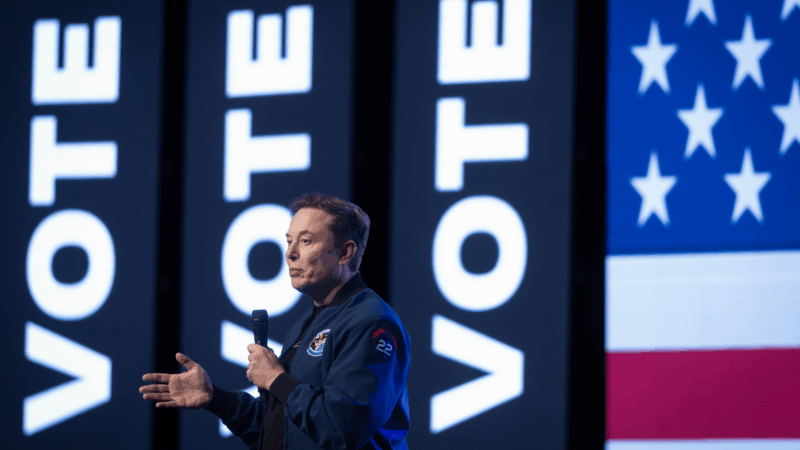Musk to slow down political spending: ‘I think I’ve done enough’
Elon Musk, who was the biggest presidential campaign donor in 2024, said on Tuesday that he plans to scale back his political spending.
“I’m going to do a lot less in the future,” he said in a video interview with Bloomberg News at the Qatar Economic Forum. “I think I’ve done enough.”
When asked if spending less on politics was driven by any blowback he’s weathered in the Trump administration, Musk said: “If I see a reason to do political spending in the future. I will do it. But I don’t currently see a reason.”
Musk, the world’s richest person, funneled nearly $300 million into the campaign of President Trump, becoming a top political donor and a symbolically potent ally of the president.
Trump elevated Musk as a key figure in the White House, which was crystallized during an early Cabinet meeting where Musk dominated the discussion, as department secretaries looked on cautiously.
Musk has appeared alongside the president in the Oval Office to tout his work with the U.S. DOGE Service, an initiative aggressively focused on trimming federal government spending, having laid off thousands of government employees and helped to unwind entire agencies.
The effort has drawn intense scrutiny. Researchers and good-government groups question whether DOGE has indeed cut “waste, fraud, abuse.” The unit’s public accounting of savings is routinely riddled with exaggerations, double-counting and other inconsistencies.
Public polling has been showing that Musk’s DOGE effort is unpopular, with voters disapproving of Musk more so than Trump.
Last month, Musk’s celebrity and fortune did not help Republicans win a Wisconsin Supreme Court election, where Musk poured in millions and tried to harness his image as a tech executive disrupter to win the top judicial seat in the state. But it backfired. Analysts say Musk’s involvement became a political liability, as Democrats used it to rally voters against the billionaire.
On a recent call with investors of Tesla, whose sales and profits have cratered in the first three months of the year, Musk said he was turning his full-blown White House gig into something of a part-time job to refocus his energy on the struggling electric vehicle company.
Musk’s commitment to Tesla – the largest source of his personal wealth – came as the Wall Street Journal reported that the company’s board of directors had begun the process of potentially replacing Musk as chief executive.
It may be yet another sign of Musk’s slow fade out from Washington. But he hasn’t completely disappeared. For instance, Musk said on Tuesday he will be attending a dinner with Trump on Wednesday, proof that the executive is still in Trump’s inner circle, even if his prominence appears to be waning.
In Vermont, small town meetings grapple with debate on big issues
Typically concerned with local issues, residents at town meetings in Vermont and elsewhere increasingly use the forum to debate polarizing national and international events.
Alabama man, on death row since 1990, to get new trial
The U.S. Supreme Court on Monday declined to review the summer ruling from the 11th U.S. Circuit Court of Appeals. The decision paves the way for Michael Sockwell to receive a new trial.
Supreme Court blocks redrawing of New York congressional map, dealing a win for GOP
At issue is the mid-term redrawing of New York's 11th congressional district, including Staten Island and a small part of Brooklyn.
U.S. states take steps to guard against any potential threat from Iran
Iran has made prior attempts to launch terrorist attacks on U.S. soil, but all have been thwarted in recent years. States are bracing for a heightened threat after the war.
Video of Clinton depositions in Epstein investigation released by House Republicans
Over hours of testimony, the Clintons both denied knowledge of Epstein's crimes prior to his pleading guilty in 2008 to state charges in Florida for soliciting prostitution from an underage girl.
Some Middle East flights resume, but thousands of travelers are still stranded by war
Limited flights out of the Middle East resumed on Monday. But hundreds of thousands of travelers are still stranded in the region after attacks on Iran by the U.S. and Israel.






